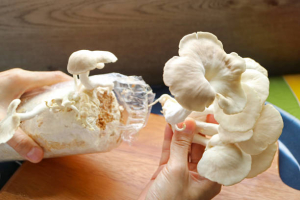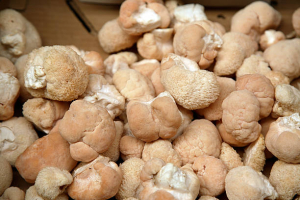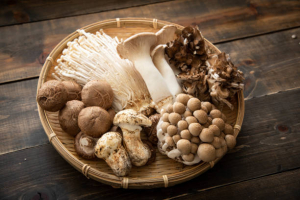Top 5 Health Benefits of Chanterelle Mushrooms
Chanterelle mushrooms are an exciting and adaptable type of edible fungus, known for their rich flavor, soft texture, and golden color. Chanterelle mushrooms, ... read more...also known by their scientific name Cantharellus cibarius, have a peppery flavor that has occasionally been characterized as slightly sweet or fruity. Many meals, such as sauces, soups, scrambled eggs, and side dishes, include chanterelle mushrooms. And here are the best health benefits of them.
-
Each serving of chanterelle mushrooms has a healthy level of fiber while being low in calories. They also supply a number of additional essential elements, such as copper, niacin, and vitamin D.
Just 1 cup (54 grams) of raw chanterelle mushrooms contains:
- Calories: 17
- Protein: 1 gram
- Fat: 0.3 grams
- Fiber: 2 grams
- Copper: 21% of the Daily Value (DV)
- Niacin: 14% of the DV
- Vitamin D: 14% of the DV
- Pantothenic acid: 12% of the DV
- Iron: 10% of the DV
- Riboflavin: 9% of the DV
- Manganese: 7% of the DV
Copper is a mineral that is essential for your body's energy generation, brain function, and iron metabolism. Chanterelle mushrooms are particularly high in copper. They also include a little amount of vitamin D, which your body needs to keep your bones and immune system healthy. Additionally, chanterelle mushrooms include a number of B vitamins, including niacin and pantothenic acid, which both help the central nervous system of your body.

Pack with nutrients 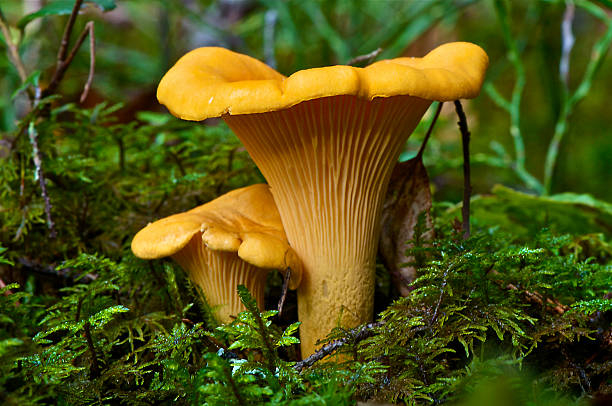
Pack with nutrients -
Antioxidants, which are substances that may lessen inflammation and shield you from chronic disease by neutralizing damaging free radicals, are abundant in chanterelle mushrooms. Chanterelle mushrooms in particular contain a number of antioxidant substances such as beta-carotene, flavonoids, polyphenols, and ascorbic acid, according to test-tube research.
Certain chemicals extracted from chanterelle mushrooms may help reduce inflammatory indicators like interleukin-6, according to several test-tube studies. Other test-tube studies also suggest that certain chemicals isolated from chanterelle mushrooms may have cancer-fighting qualities and may inhibit the formation of cancer cells, however, more study is required in this area.
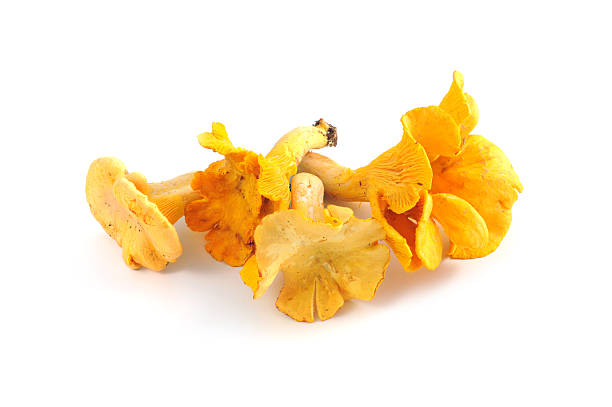
Rich in antioxidants 
Rich in antioxidants -
One of the few naturally occurring dietary sources of vitamin D, a crucial component that many people lack, is chanterelle mushrooms. Vital for keeping strong bones is vitamin D. It aids in controlling calcium absorption and bone tissue mineralization. It's crucial to make sure you're receiving enough vitamin D via diet, supplements, and sun exposure. In fact, research suggests that a vitamin D deficiency may raise the risk of osteoporosis and bone fractures.
For the human body, potassium is an essential element that supports the cardiovascular system's operation. A healthy potassium level lowers the risk of stroke and maintains stable blood pressure. Additionally beneficial to bone health is potassium.
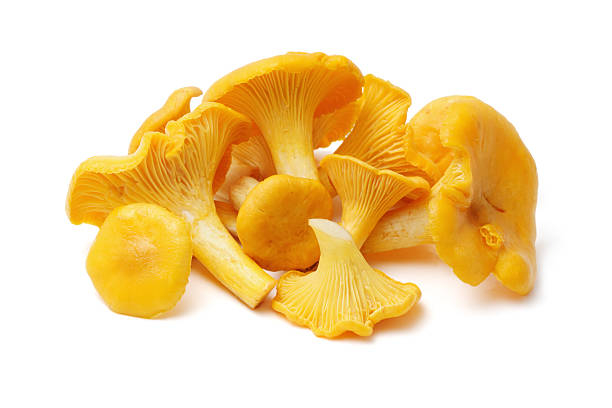
Support bone health 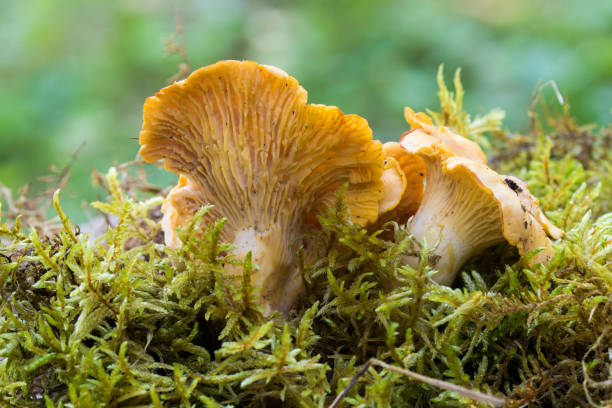
Support bone health -
The immune system is maintained by a number of micronutrients found in chanterelle mushrooms. For instance, they contain a lot of copper, which is important for immunity. This vitamin also regulates the level of your blood glucose. Another important role of Vitamin B6 is to break down fats, amino acids, and carbohydrates that play a role in maintaining lymph node health. A lack of this vital mineral may even make the body more vulnerable to bacterial infections, claims one research.
They also supply a sufficient level of vitamin D, another element that supports a strong immune system to ward against disease and infection. Additionally, test-tube research discovered that certain chemicals taken from chanterelle mushrooms may be able to increase the performance of your immune system and combat free radicals.
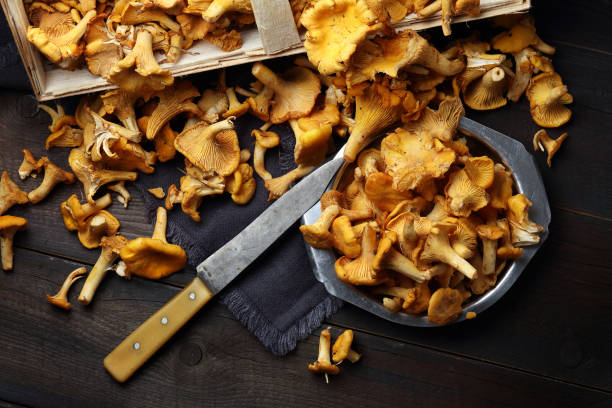
Promote immunity 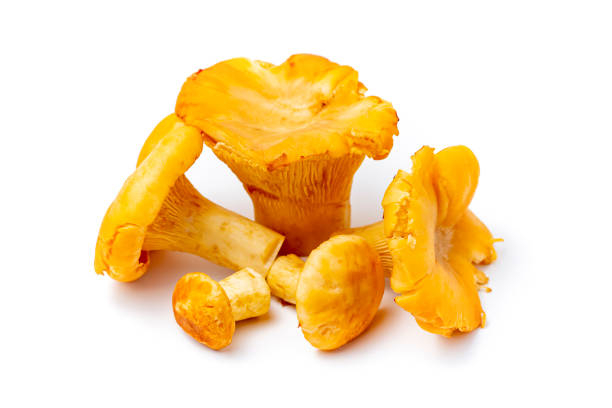
Promote immunity -
Men who eat Chanterelle mushrooms more frequently had a lower risk of prostate cancer, according to research that was published in a 2020 issue of the International Journal of Cancer.
Researchers monitored 36,499 Japanese males between the ages of 40 and 79. The lowest risk was among individuals who ingested mushrooms more than three times per week, whereas the highest risk was among those who only ate them occasionally. Researchers believe that ergothioneine, an antioxidant often present in mushrooms, is responsible for the connection. The vitamin D-rich fungus chanterelle can be a great food source. This vital vitamin aids the immune system's defense against foreign germs and viruses, among other vital functions in the body.

Reduces risk of prostate cancer 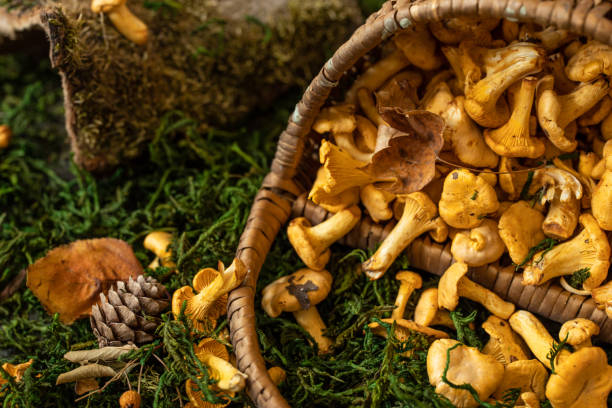
Reduces risk of prostate cancer









